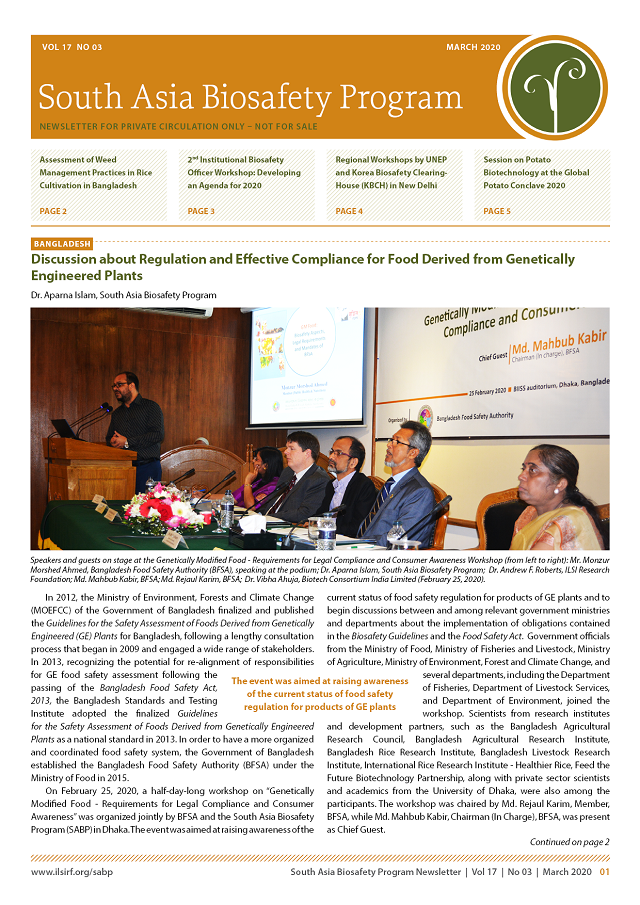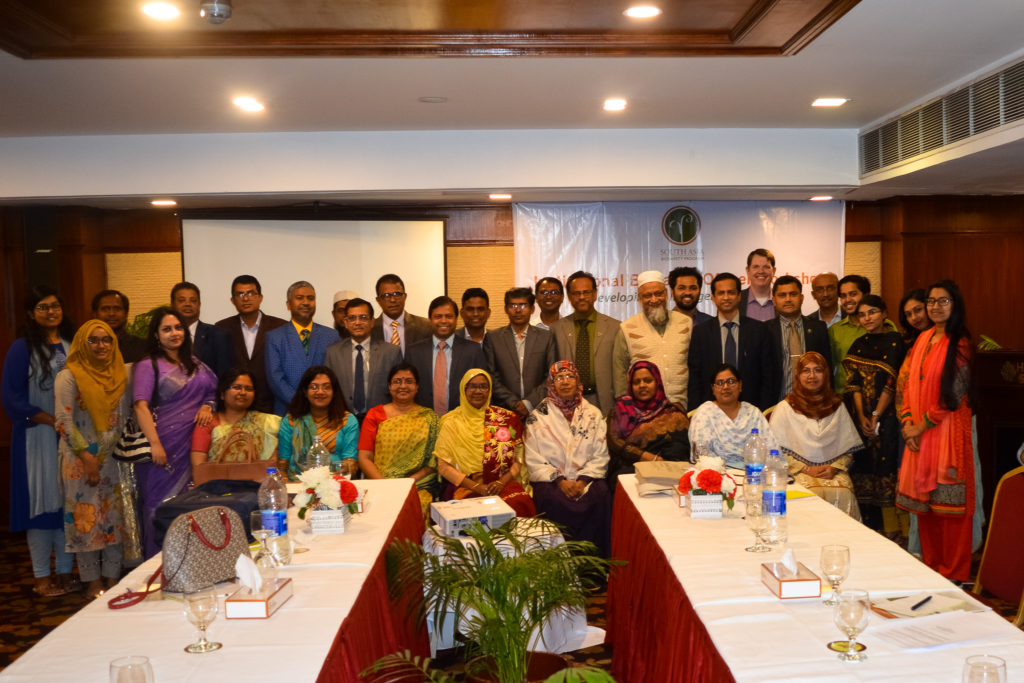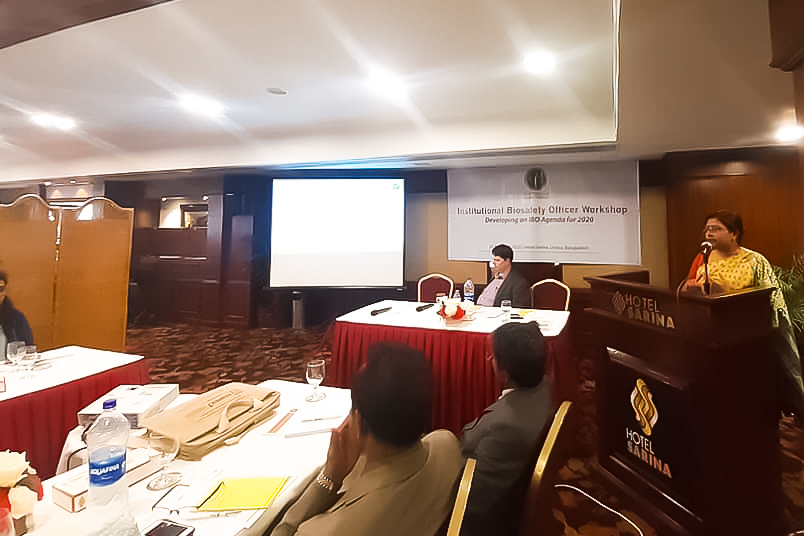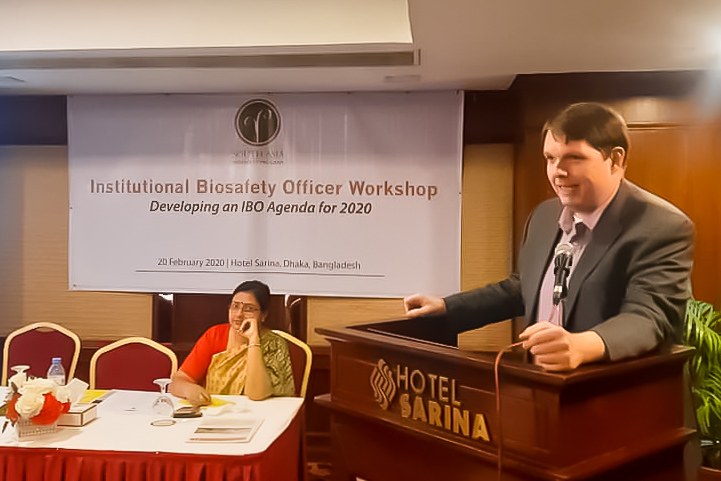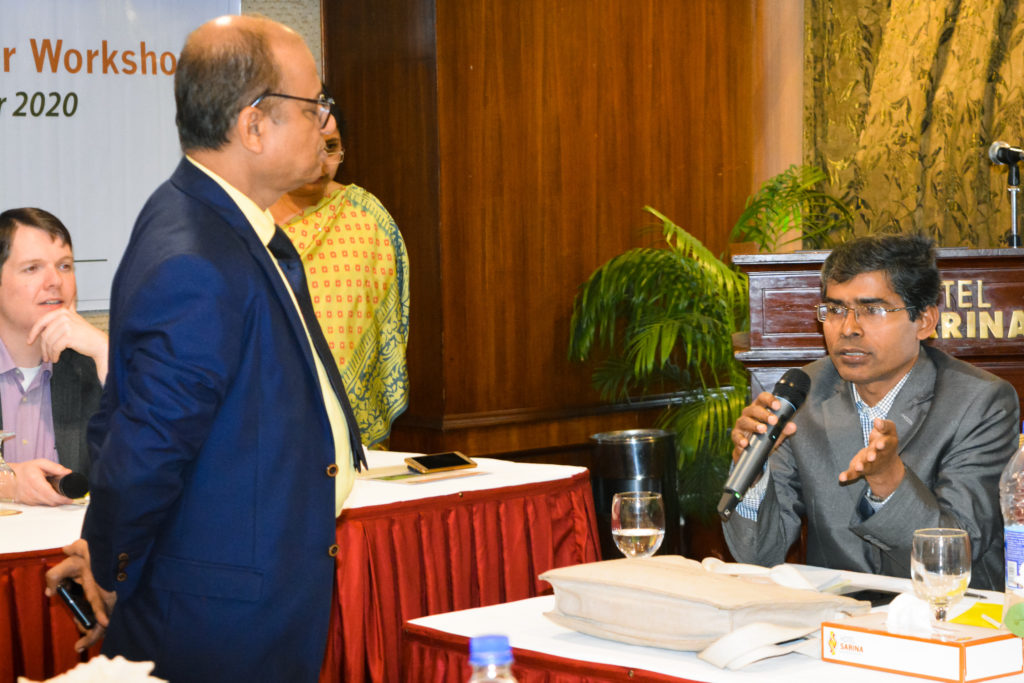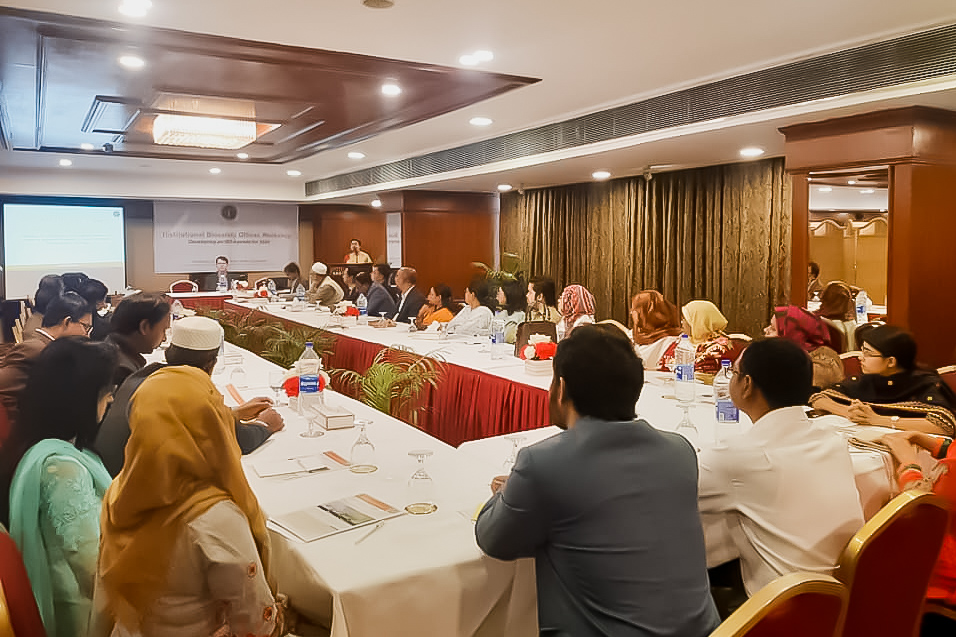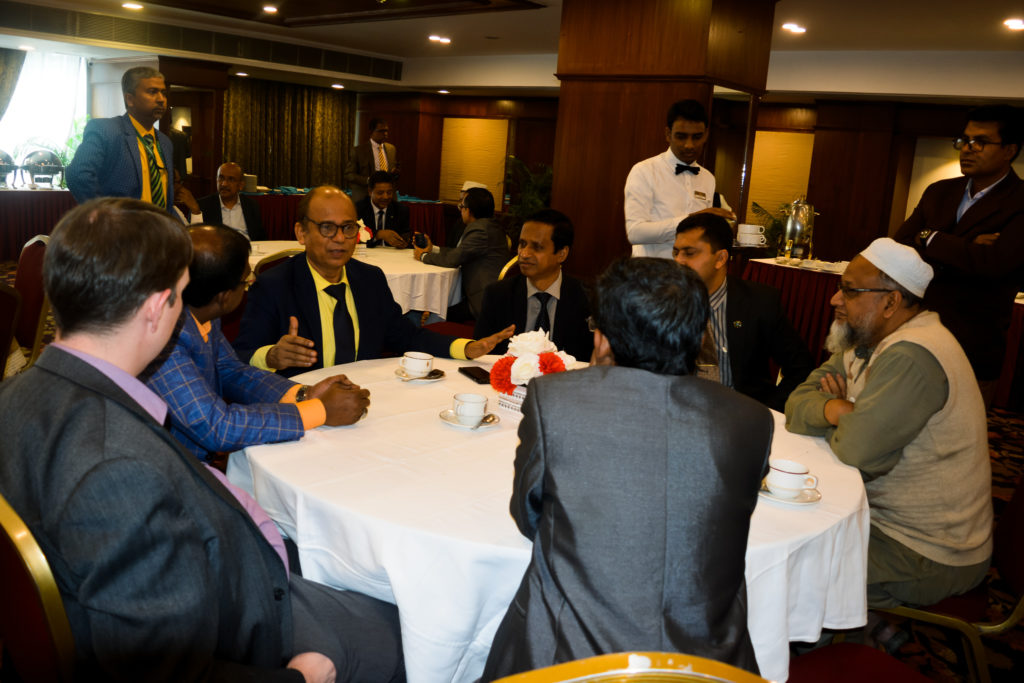2nd Institutional Biosafety Officer Workshop
-
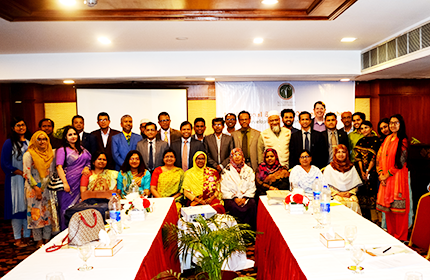
February 20, 2020
Hotel Sarina
Dhaka, Bangladesh
Overview
Bangladesh has engaged in research in plant biotechnology for more than 30 years, beginning with plant tissue culture in the 1980s and toward genetic transformation to develop Genetically Engineered (GE) crops in the mid 2000s. Since then, research has progressed and the number of crops and projects underway has expanded, both at public and private research institutes, as well as universities.
In light of the potential for modern biotechnology to enhance food and nutritional security, while keeping in mind public concerns about human and environmental safety, the Government of Bangladesh has developed a series of policies and procedures intended to facilitate the research, development, and safe application of biotechnology. The regulatory framework in Bangladesh is supported by a series of official publications, including: Biosafety Guidelines (2006), National Biosafety Framework (2007), Bangladesh Biosafety Rules (2012), Guidelines for Food Safety Assessment of GE Foods (2012), and Environmental Risk Assessment Guidelines for GE Plants (2016). All these publications may be accessed at bangladeshbiosafety.org.
Currently, many public research institutions, individually or in collaboration with foreign research partners, are developing GE crops in Bangladesh. One of the successful examples of collaborative research is Bt brinjal, which got approved by the Government of Bangladesh on October 30, 2013, for limited cultivation in the field. Since 2014, this trait has been cultivated commercially for human consumption, making Bangladesh a pioneer in the arena of GE food crop commercialization in South Asia. Many other crops are now ready to be assessed or already under trial to evaluate their performance. To support such activities, the Government of Bangladesh has developed supporting documents, such as the Standard Operation Protocols (SOPs) for Confined Field Trial (CFT), Data Recording Formats for CFT, and Manual for Confined Field Trial. As per the Biosafety Guidelines, institutions conducting research and development with GE plants need to operate in accordance with these documents, and it is the responsibility of Institutional Biosafety Officers (IBOs) or Institutional Biosafety Committees (IBC) to ensure that individual researchers are in compliance. But, as the number of crops are diversifying in the field of GE research, it is important to periodically review and update these documents, and to develop appropriate additional materials to ensure that research can continue unhindered while meeting standards for biosafety.
Against the backdrop of continued developments in both research and regulation of biosafety in Bangladesh, the South Asia Biosafety Program (SABP) arranged a day-long workshop on February 20, 2020 in Dhaka, to take stock of the present status at various research institutes and laboratories that are actively involved in GE research in Bangladesh. This was carried out through open discussion among the practitioners, the network established in 2019 during SABP’s first IBO Workshop. Through exchanging experiences, participants increased their knowledge of biosafety compliance during the research and development of GE plants. Moreover, they identified areas where there are gaps are in terms of capacity building and/or document requirements. Finally, they received hands-on training in SOP development for CFTs, as new institutes are getting engaged in this stage.
Agenda
9:30 am
Registration
10:00 am
Welcome and Introduction
Dr. Aparna Islam
10:20 am
Biosafety Regulation for GE crops in Bangladesh
Mr. Solaiman Haider
10:40 am
Institutional Biosafety Officers: Roles, Expectations and Challenges in Bangladesh
Dr. Andrew F. Roberts
11:00 am
Tea Break
11:30 am
Taking Inventory of Relevant Biosafety Documents
Dr. Aparna Islam
12:15 pm
Introduction to Plant Biology Documents and Confined Field Trial SOPs
Dr. Andrew F. Roberts
1:00 pm
Lunch break
2:00 pm
Group Discussion Identification of needs in documentation, resources, and best practices for institutional biosafety.
2:30 pm
Group Work Prioritizing future crop biology and CFT SOP documents.
Dr. Andrew F. Roberts
3:15 pm
Introduction to the Biosafety Research in Bangladesh Grants Program
Dr. Andrew F. Roberts
3:30 pm
Conclusion
3:45 pm
Tea Break
4:00 pm

